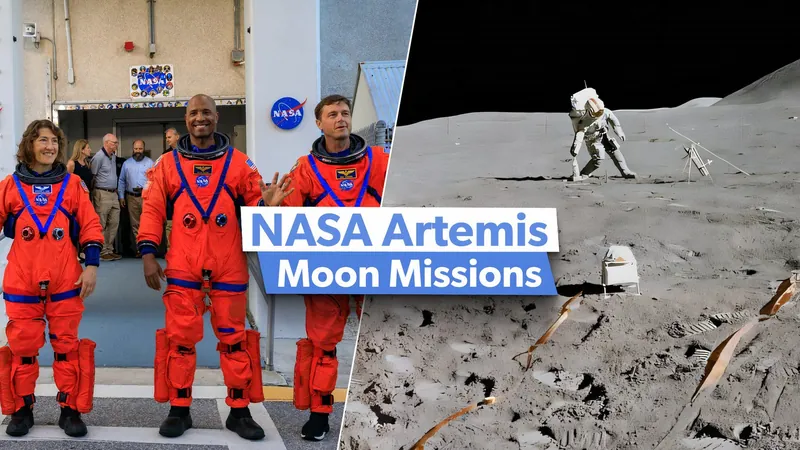
Shocking Discovery: Space Travel Accelerates Heart Aging in Astronauts!
2024-10-03
Scientists have made a groundbreaking discovery: traveling to outer space may cause the human heart to age faster than previously thought. Recent experiments involving heart tissue have shed light on the alarming impact of microgravity on cardiovascular health.
The Innovative Study
In an innovative study led by researchers at Johns Hopkins Medicine, bioengineered heart chambers were developed using stem cells and then launched into space aboard the International Space Station (ISS). These specially designed heart tissue samples were kept under controlled conditions, simulating the environment of an adult human heart chamber, which allowed the researchers to monitor their functionality from afar.
The Experiment's Journey
After being transported via aircraft to Florida’s Kennedy Space Center and nurtured by team member Jonathan Tsui, the heart tissues embarked on SpaceX’s CRS-20 mission in March 2020. Each sample was placed in liquid nutrients, with data collected every thirty minutes over the course of 30 days. The results were compared to a control group of heart tissues that remained on Earth under similar conditions—a pivotal aspect of this research.
Startling Findings
The findings were startling. Heart tissues exposed to space conditions exhibited significant signs of age-related deterioration. Researchers observed that the protein structures within the heart cells, known as sarcomeres, suffered from disorganization and degradation. Furthermore, the mitochondria—critical powerhouses of the cells—became enlarged and less efficient, leading to reduced energy production. Inflammation and oxidative stress markers were also present, indicating a dire impact on cardiac health.
Astronauts' Experiences
Astronaut Jessica Meir, who has firsthand experience with the physical tribulations of space travel, noted that these symptoms align with those frequently observed in astronauts during post-mission health checks. "We’ve consistently seen these effects in astronauts after flights," she stated, underscoring the seriousness of the findings.
Implications of the Research
Moreover, this research revealed that while in space, heart tissues experienced a prolonged interval between beats, with some samples showing a delay of up to five seconds—five times longer than normal heartbeats on Earth. This staggering change resulted in the samples beating with only half the strength of heart tissues on our planet.
Conclusion
The implications of this research are profound, particularly as space travel becomes more commonplace with plans for longer missions to the Moon and potentially Mars. Understanding how microgravity affects the human body, especially the heart, is crucial for ensuring the health and safety of future astronauts.
As we move into a new era of exploration beyond our planet, is it time to rethink the risks to our cardiovascular system? This revelation certainly opens the door for further investigations into the long-term health consequences of living in space. Stay tuned as we continue to cover the health implications of space travel and what it means for humanity's future in the cosmos!



 Brasil (PT)
Brasil (PT)
 Canada (EN)
Canada (EN)
 Chile (ES)
Chile (ES)
 España (ES)
España (ES)
 France (FR)
France (FR)
 Hong Kong (EN)
Hong Kong (EN)
 Italia (IT)
Italia (IT)
 日本 (JA)
日本 (JA)
 Magyarország (HU)
Magyarország (HU)
 Norge (NO)
Norge (NO)
 Polska (PL)
Polska (PL)
 Schweiz (DE)
Schweiz (DE)
 Singapore (EN)
Singapore (EN)
 Sverige (SV)
Sverige (SV)
 Suomi (FI)
Suomi (FI)
 Türkiye (TR)
Türkiye (TR)